The epidemic is still sweeping Kabezi and other localities in defiance to stakeholders’ effort. The insufficiency of prevention means is identified as the cause.
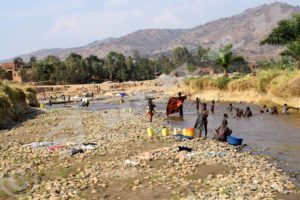
Lives exposed to Cholera: Riverside residents use contaminated water of Mugere River for different purposes, thus exposing their lives to the epidemic.
The cholera epidemic continues to spread across different localities of Kabezi health district and beyond. That persistence defies not only the constant and sustained attention but also the effort devoted by stakeholders to fight the disease. “We are doing our best to help cure and prevent the epidemic but new cases still occur”, says Dr Vianney Ndayishimiye, the Bujumbura provincial doctor.
He explains that problems are at the level of prevention. “The root causes are not yet eradicated especially because we don’t have enough means to provide clean water to all the susceptible population. In addition, people tell us that they lack latrine slabs”.
Some riverside residents still use contaminated water. Dr Ndayishimiye says that a recent laboratory analysis has shown that Mugere and Kizingwe rivers contain Vibrio cholera, the bacterium causing the infectious disease.Unfortunately, people use the water of those rivers even after many cases of cholera have been reported in those areas.
Inhabitants using the Mugere river water say they are aware it is dirty but they can’t help using it. “We know this water is not clean, but we use it to cook, do the dishes and wash ourselves”, says Evelyne Nshimirimana, a mother of five, met at the Mugere river fetching water. “What else should we do? We have no clean water anywhere else. Even where we have taps, they are often dry. Moreover, we have to pay BIF 50 for a can of water. So, if we manage to find water, we just pay for one can to drink and rely on this river for other needs”, says Iradukunda Ornella, a middle school pupil. She adds that there are even some people who drink that river water. They fetch the water at dawn when it is still somehow “clean”. Ange Lydia Mpawenimana, another middle school pupil, says: “If no one comes to help us, we will all get sick”.
Dr Ndayishimiye says four clean water bladders have been set so far. One near the cholera treatment centre in Kabezi, two others in the areas of Mugongo and Gakombera (Kabezi health district) and one in the Kajiji municipal area. But those are not enough. “We ask anyone who can help to provide us with more water bladders to save the vulnerable population”, he says.
New measures have been taken to combat the disease. If any case arises, the patient’s home and 24 others in the perimeter are disinfected. So far, 1504 homes have been disinfected in Kabezi. People are then given cans to store water, soaps and Aquatabs pills for water purification. The same items are given to all discharged patients.
Administrators have tightened measures to ban the selling of cooked food and to close restaurants and bars that presented health risks. New patients are taken to nearby medical centres where the ambulance comes to carry them to specialized centres of treatment which are now 3 (Kabezi, Ruziba and Prince Regent Charles Hospital). At those centres, patients are totally taken care of by the centres and the health care is completely free.
Health agents and administrative authorities intensify sensitization campaigns. Each morning at 8, a meeting is held between medical agents, administrators and other helpers at the Kabezi centre. Likewise a meeting is held every day at 2 p.m. at the Ministry of Health between health officials and partners (WHO, MSF Belgique, MSF Suisse, UNICEF and the Red Cross) to evaluate the state of affairs of the epidemic and set guidelines for future actions.
Dr Ndayishimiye says that the epidemic has had at least 196 victims since its outbreak last July in the rural district of Kabezi. 190 patients have already been discharged, 5 are still hospitalized and 1 died because he had other health problems. 62 patients came from Bujumbura town, 17 from Kajiji, 45 from Ruziba, and one from Gitaza (Rumonge southern Province).

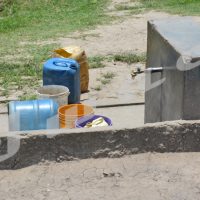
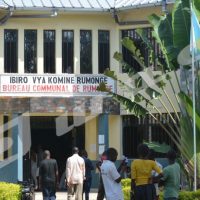
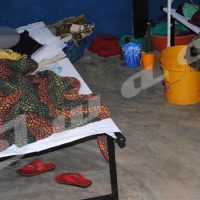

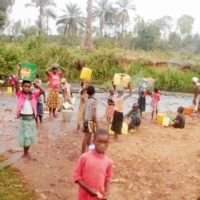













 IWACU Open Data
IWACU Open Data

